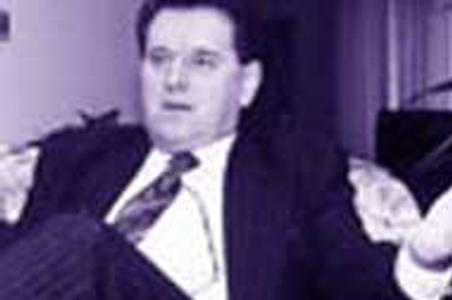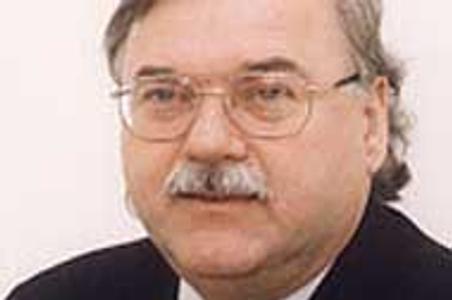Archive of articles - May 1999, page 6
If you desire to read an old article, use the search bar or select the publication date.
Few surprises in Presidential contest
All the work of the ten presidential aspirants, the billboards and the speeches, may be for naught, political analysts say, most voters having apparently already decided for whom they will cast their ballots on May 15.The first round of the electorial battle, pundits say, will probably leave Mayor of Košice Rudolf Schuster and former Prime Minister Vladimír Mečiar first and second in voting respectively. The two men will then move on to a second run-off round of voting on May 29, with the biggest vote-getter taking the presidency.There are few dark horse candidates in the race, but analysts said that if three independent candidates - former actress Madga Vášáryová, former president Michal Kovač and academic Juraj Švec - agreed to unite and pool their support behind whichever of the three ranked highest in the polls, then that candidate might edge out Mečiar in the first round and go on to challenge Schuster.
IT and telecom markets set to boom
According to domestic and international human resources firms, the current shortage of jobs in Slovakia could soon be relieved by a boom in the Information Technology and telecom sectors. Some job market analysts have predicted that these two fields may account for as much as 70% of all new jobs in eastern Europe over the next 10 years."A trend is developing in the fields of Information Technology and telecommunications," said Martin Novotný, managing partner of HR consulting agency Jenewein International in Bratislava. "In terms of human resources, the two fields will definitely create a better job market, because nowadays these areas are very important."Novotný explained that Slovakia, and the eastern European region in general, was still catching up with the West in terms of IT and telecom technology. "This is a classical development," he said, adding that the boom was fast approaching.
Slovak steel VSZ's losses seen continuing
Slovakia's biggest steel maker , VSŽ a.s., could continue to make losses at least into the second quarter of this year, equity analysts said on May 6. Earlier in the day, VSŽ posted a first quarter net loss of 1.359 billion Slovak crowns ($32.6 million) for the first three months of 1999, after posting losses of 11.059 billion for the whole of 1998. Official comparative figures were not immediately available."It can't be that easy for a company of VSŽ's size to reverse the negative trend," Miroslav Nosal of Merril Lynch told Reuters."The first quarter loss is not a surprise, and I would not be surprised if the company stays in the red also in the next quarter of the year," Nosal added.
State budget targets doubted by ministers
Members of the Slovak government have quietly revised major macroeconomic targets for 1999, confirming what econpmic analysts have long been saying - that the cabinet's original goals, as stated in the 1999 state budget, were far too ambitious.On April 30, Deputy Prime Minister for Economy Ivan Mikloš told a news conference the government had effectively approved a public sector budget deficit of around three percent, far above the two percent target originally proclaimed by the government or the 1.6% the central bank had been hoping for.The government has not yet officially changed its budget targets, but Mikloš urged his colleagues to publicly come to grips with the new situation.
Comenius Rector Devínsky: Students are "the cream"
The Slovak University system is in serious trouble. Just ask Ferdinand Devínsky, the rector of Slovakia's largest and most prestigious institution of higher education, Comenius University. Even though it is the best-funded and most competitive school in Slovakia, the university still does not have the ability to buy modern computer equipment and supplies. The school's real budget is now at 1/3 the level it was at in 1991, the rector said.Increasingly, people from international human resources firms are saying that a degree from a Slovak University carries little real weight due to deep problems in the sector. But Devínsky countered that claim, saying that the school remained highly selective and that of the nearly half-million people currently unemployed in Slovakia, only about 1,500 people with higher education degrees are among them. Students from Comenius, he added, also have the opportunity to study at universities around the world. The Slovak Spectator interviewed Devínsky May 5 to ask him about these and other issues.
Jobless benefits to be cut sharply in '99
Battling a "catastrophic" unemployment rate and widespread abuse of the social benefits programme, the National Labour Office and the Ministry of Labour have agreed to slash unemployment benefits in the second half of 1999.Officials from the Labour Office and the ministry told journalists on April 29 that the planned revision to the Employment Law, which the government should discuss by the end of June, would shorten the maximum period for receiving unemployment benefits from twelve to nine months.The proposal also suggests that the maximal monthly unemployment benefit should be cut from the current 5,400 Slovak crowns ($127) to 4,500 crowns, while the minimum rate of 3,000 crowns would remain unchanged.
USAID ending Slovak funds
As the USA winds down its aid mission, Slovakia’s non-profits brace for impact.
AIMS accepts Slovak firm Appel
The biggest European network of personnel companies, Associates for International Management Search (AIMS), added Slovakia to its list of member countries in December, 1998. At a press conference on April 25 in Bratislava, AIMS announced that the Slovak firm Appel Counseling had successfully bid for inclusion into the network through its exemplary "skills in public relations and marketing."AIMS President Christian Nitsche said that his firm would help Appel Counseling by giving the Slovak firm access to western know-how. He added that AIMS had been surprised by the level of human resources professionalism it had found in Slovakia, and that Slovakia should not be considered a second-rate member.
Balance of payments deficit to hit mid-year trough
The official SAX equity index continued to oscillate around the 75-point level and closed at 75.92 on May 3. Trading activity during the last two weeks of April decreased slightly, bringing the average daily turnover of the last month to 70.8 million Slovak crowns ($1.7 million).Oil refiner Slovnaft posted a price decline after the official announcement of its financial results for 1998, but recent developments suggest that this stock has stabilised at a price of around 500 crowns. Investors expect a better performance from the refinery in 1999, as the prices of crude oil have increased to a very favourable level for Slovnaft after collapsing in 1998. Another factor behind the optimistic expectations for Slovnaft stock is the proposed entry of a foreign partner, which may happen even before the end of this year.
And then there were ten: Presidential candidate profiles
Ten candidates will vie for the presidential palace in Slovakia's first direct presidential election May 15. The following profiles are arranged in descending order of popularity as measured by a Názory agnecy poll conducted from April 23-29.Rudolf Schuster Leading presidential candidate Schuster, 65, won his position as the candidate of the ruling government coalition in a post-1998 election deal in which he pledged his self-founded party, The Party of Civic Reconciliation (SOP), to coalition support. Schuster sees his mission and that of his party as one of bridging the political gap between the current government and HZDS and SNS opposition. Schuster was a member of the Communist Party from 1964, and, after becoming a top official in 1986, went on to head the Communist Slovak parliament shortly before the revolution. From 1990 to 1992, he was Czechoslovak Ambassador to Canada, and in 1994 he returned to a post he held during communism by being elected the mayor of the eastern city of Košice.
New funding sources for NGOs
With fiscal year 1999 the last budgeted year for USAID programs in Slovakia, Slovak NGOs are entering a time of transition in search for funding. A variety of different options are being considered.One major potential source is the government itself. According to a USAID report, in the 1996 Slovak national budget contained 563,996,999 crowns for "public benefit funding purposes," including state entities, civic associations, foundations and other organisations through contracts subsidies, grants or targeted contributions. However, the method of divvying out this money has in he past been extremely non-transparent, with money going to friends and supporters of the state, the report said.This situation has not changed significantly with the new government, said Dušan Ondrušek, executive director for the Slovak NGO Partners for Democratic Change. But the money remains a possible well-spring for NGOs.
- Slovak female triathlete shatters barriers with historic win at Himalayan event
- No more photos or bank statements? Slovakia moves to ease residence process
- Convicted of multiple murders, Slovakia’s mafia boss seeks release from prison
- Top 10 events in Bratislava for foreigners
- Slovakia loses another EV model to Spain as Stellantis chooses Zaragoza over Trnava
- Weekend: Celebration of fun comes to Malacky Photo
- UK appoints Bilal Zahid as new ambassador to Slovakia
- News digest: Violent gang in Bratislava is under arrest
- Top 10 events in Bratislava for foreigners
- No more photos or bank statements? Slovakia moves to ease residence process
- Weekend: Celebration of fun comes to Malacky Photo
- Slovakia loses another EV model to Spain as Stellantis chooses Zaragoza over Trnava
- News digest: Prosecutor seeks jail for NBS Governor Kažimír as his political support wanes
- Slovak female triathlete shatters barriers with historic win at Himalayan event
- Convicted of multiple murders, Slovakia’s mafia boss seeks release from prison
- News digest: Fico’s bloc wants to save money by restricting electoral access
- Maria Theresa on the banks of Bratislava
- No more photos or bank statements? Slovakia moves to ease residence process
- 3 free things to do in Bratislava in the next seven days
- Weekend: Celebration of fun comes to Malacky Photo
- Top 10 events in Bratislava for foreigners
- Digital Jarvis is real now. He is coming for your to-do list
- The Kremlin’s security agency has a Russian contractor in Slovakia - no one has noticed
- The disinformation scene has become a tool of media capture
- Maria Theresa on the banks of Bratislava
- No more photos or bank statements? Slovakia moves to ease residence process
- A mayor resigns over €2.7 million fraud scandal at town hall
- He designed Gatwick. But this is his masterpiece
- Fico praises China and Vietnam as models, says liberal democracy has failed
- News digest: Violent gang in Bratislava is under arrest
- The Kremlin’s security agency has a Russian contractor in Slovakia - no one has noticed
- The compass points to Kúty, and people are starting to follow
- News digest: Prosecutor seeks jail for NBS Governor Kažimír as his political support wanes
- Slovakia loses another EV model to Spain as Stellantis chooses Zaragoza over Trnava
- Slovak female triathlete shatters barriers with historic win at Himalayan event
- Weekend: Celebration of fun comes to Malacky Photo
- News digest: Fico’s bloc wants to save money by restricting electoral access
- Slovakia plans to restrict access to new medicines amid funding shortfall
- No more photos or bank statements? Slovakia moves to ease residence process
- Top 10 events in Bratislava for foreigners More articles ›







